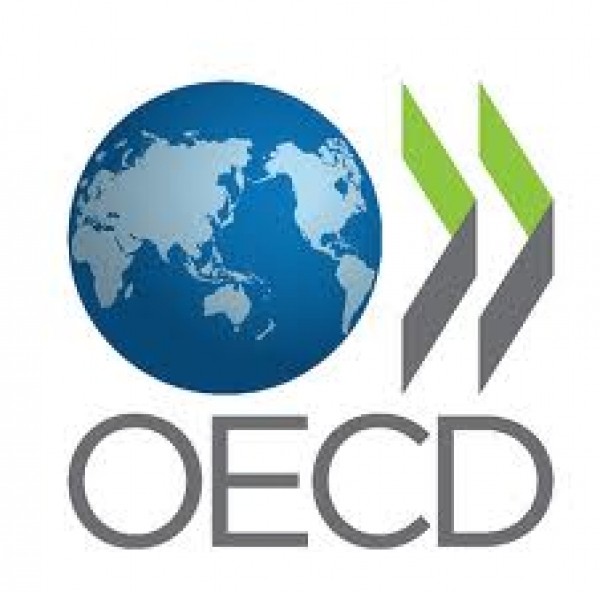A new OECD report on “The Competitiveness of Global Port-Cities; The Case of Rotterdam/Amsterdam – The Netherlands” was presented on May 10, 2013. The report was co-authored by OECD’s Olaf Merk and PortEconomics co-director Theo Notteboom, but it draws on the work of a number of other contributors, including PortEconomics members César Ducruet and Wouter Jacobs.
The report has been realized at the request of the Netherlands Ministry of the Economy, Agriculture and Innovation, the city of Rotterdam, the city of Amsterdam and the port authority of Amsterdam.
 The reporter offers an evaluation of the performance of the ports of Rotterdam and Amsterdam, an analysis of the impact of these ports on their territory and an assessment of policies and governance in this field. It examines port performance over the last decades and identifies the principal factors that have contributed to it. The effect of the ports on economic and environmental questions is studied and quantified where possible. The value added of the port clusters of Rotterdam and Amsterdam is calculated and its interlinkages with other economic sectors and regions in the Netherlands delineated. The major policies governing the ports are assessed, along with policies governing transport and economic development, the environment and spatial planning. These include measures instituted by the port authorities, as well as by local, regional and national governments. Governance mechanisms at these different levels are described and analysed. Based on the report’s findings, recommendations are proposed with a view to improving port performance and increasing the positive effects of the ports of Rotterdam and Amsterdam on their territory.
The reporter offers an evaluation of the performance of the ports of Rotterdam and Amsterdam, an analysis of the impact of these ports on their territory and an assessment of policies and governance in this field. It examines port performance over the last decades and identifies the principal factors that have contributed to it. The effect of the ports on economic and environmental questions is studied and quantified where possible. The value added of the port clusters of Rotterdam and Amsterdam is calculated and its interlinkages with other economic sectors and regions in the Netherlands delineated. The major policies governing the ports are assessed, along with policies governing transport and economic development, the environment and spatial planning. These include measures instituted by the port authorities, as well as by local, regional and national governments. Governance mechanisms at these different levels are described and analysed. Based on the report’s findings, recommendations are proposed with a view to improving port performance and increasing the positive effects of the ports of Rotterdam and Amsterdam on their territory.
The report – the full reference of which is “Merk, O., Notteboom, T. (2013), «The Competitiveness of Global Port-Cities: the Case of Rotterdam, Amsterdam – the Netherlands», OECD Regional Development Working Papers, 2013/06, OECD Publishing, Paris.” – is the sixth in a series of case studies within the OECD Port-Cities Programme, which attempts to identify the impact of ports on their territories and possible policies to increase the positive impacts of ports on their territories. Quite a number of PortEconomics members and associate members have substantially contributed to the other case studies finalized so far include Mersin – Turkey, Seine Axis (Le Havre, Rouen, Paris, Caen) – France, Hamburg – Germany, Helsinki – Finland and Marseille-Fos – France. These studies can be downloaded on the OECD website.
You can freely download the study @PortEconomics.











